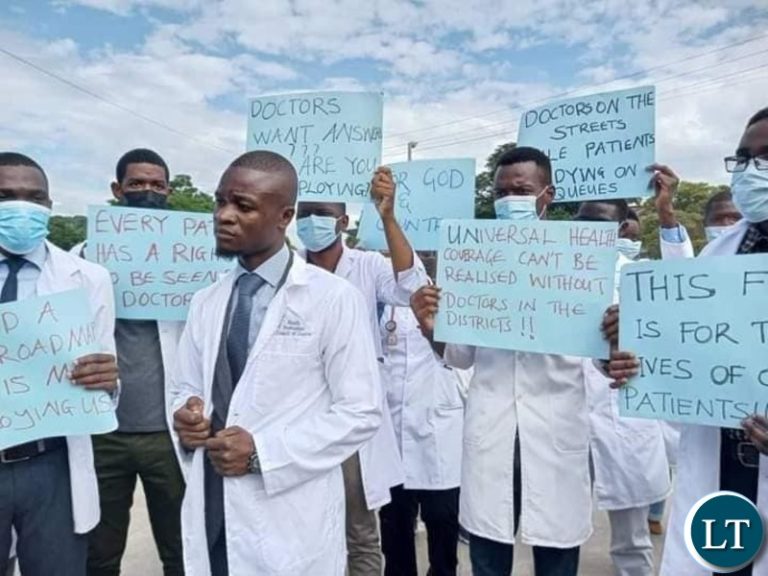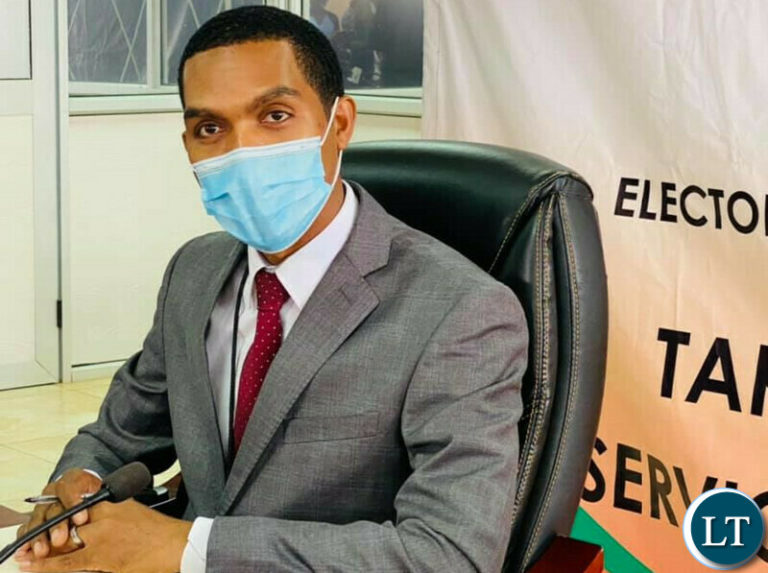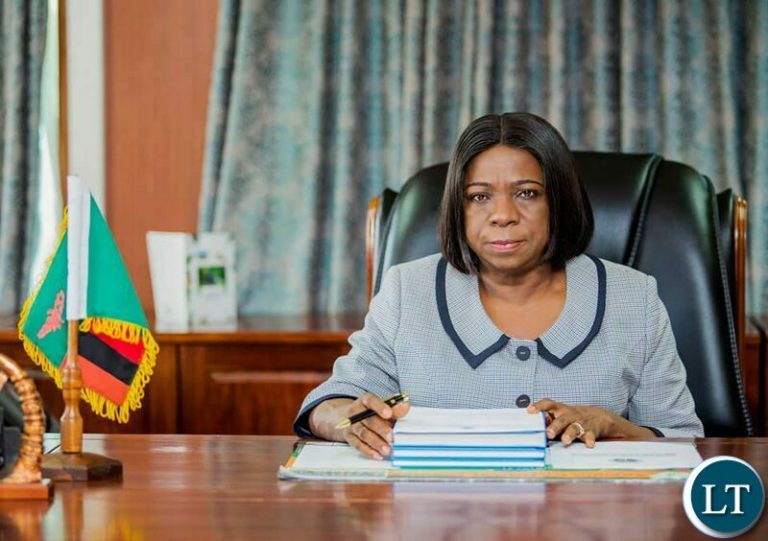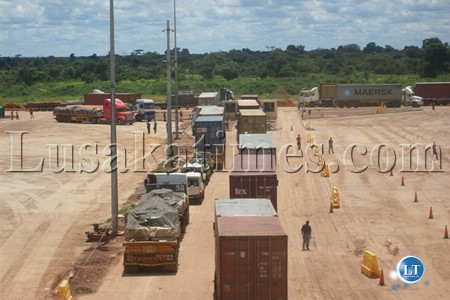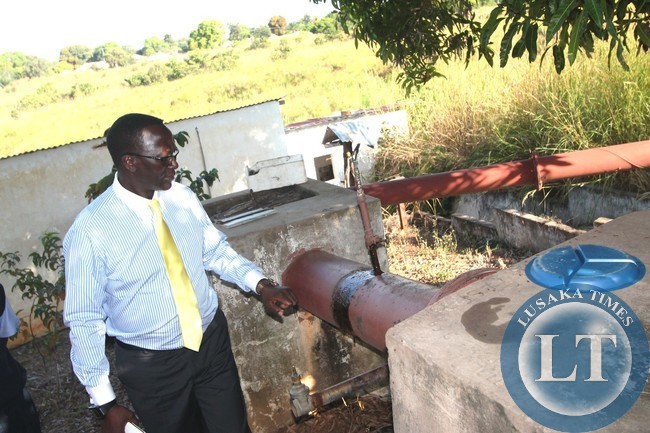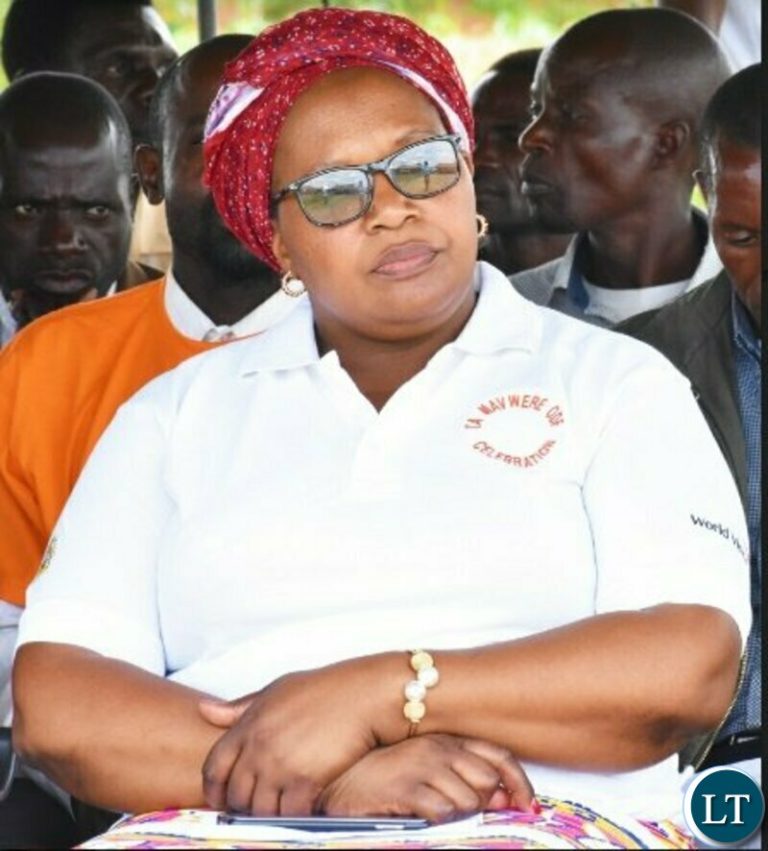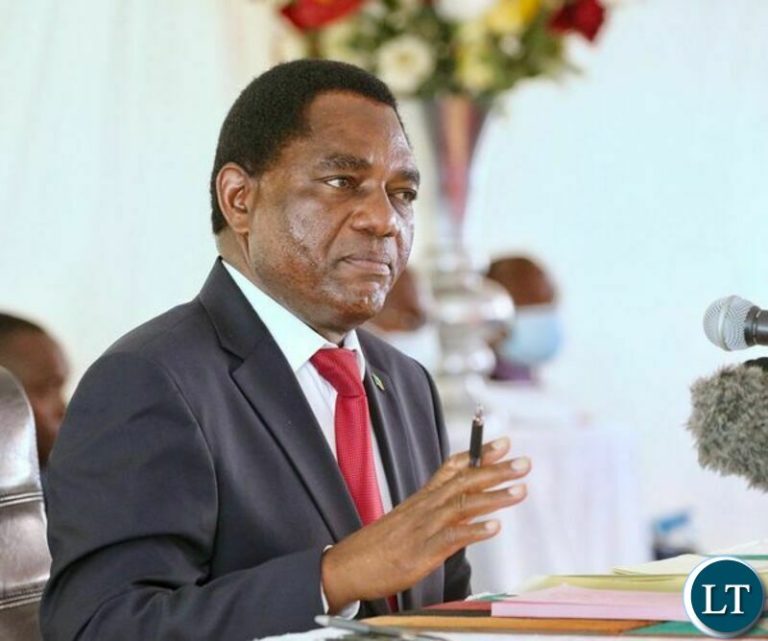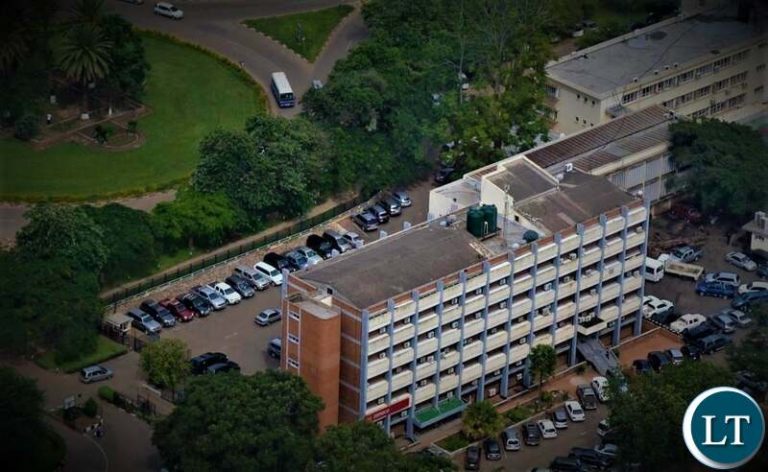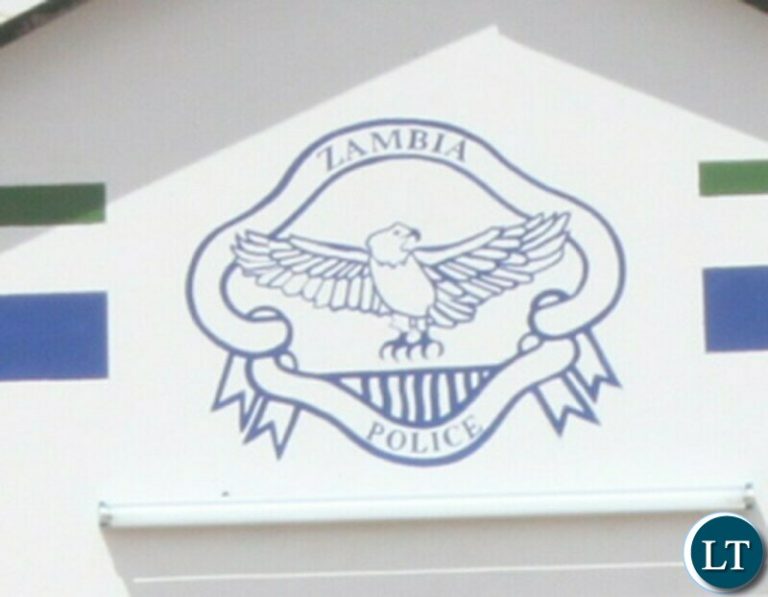By Sean Tembo – PeP President
1. Yesterday the Zambia Police Force issued a statement saying that unemployed teachers and health workers had been stopped from proceeding with their planned protest which was scheduled for today, on the basis that the written notice had been submitted to Police Force Headquarters instead of the Officer in Charge of the area of the intended protest. This excuse by the Zambia Police Force is not only shallow and lame, but it is also unlawful and unconstitutional. Section 5(4) of the Public Order Act, Cap 113 of the laws of Zambia does not restrict which police station the notice should be submitted to, but only says that the police should be notified. So the question here is whether or not the police as an institution were notified, and the answer to that question is a definite yes. This means that the unemployed teachers and health workers have fully complied with the requirements of the Public Order Act. The excuse given by the Zambia Police Force Deputy Public Relations Officer that Police Headquarters only saw the notice yesterday, despite it having been submitted more than 10 days ago, has no legal force and speaks volumes about the competence or lack thereof of the Zambia Police Force as an institution.
2. Additionally, it is standard practice that all written communication at Government institutions should be directed to the head of the institution, who will then re-direct the communication to a relevant officer for action. So if l want to write to ZICTA, l have to address my communication to the Director General, if l write to Bank of Zambia l need to address my correspondence to the Governor, if l write to ZRA l need to address my correspondence to the Commissioner General and if l write to the Zambia Police Force, l have to address my correspondence to the Inspector General. So the excuse by our Police Force is extremely shallow.
3. But what is more worrying is the rapid pace at which our civil liberties have shrunk under President Hakainde Hichilema. And while he is taking away our constitutional rights, he keeps preaching about the restoration of the rule of law. “Aluma nakufuzilila”. In this regard, am reminded of the very able submission which was made by Professor Muna Ndulo, way back in 2019 on the subject of the Public Order Act and the right to freedom of assembly which l share below:
“In Zambia, there is the constant talk of the need to discuss the implementation of the Public Order Act. I have been trying to fathom what there is to discuss about this Act. The incomprehensibility of the discussion in the public sphere is heightened by the fact that the Act in issue is unconstitutional and therefore invalid. What is there to discuss about an unconstitutional act save for repealing it? Although, I am conscious that I might be speaking to the deaf, it helpful to comment on the issues surrounding the Public Order Act for the sake of posterity and those who are genuinely interested in learning about the this Act. It is imperative that the collective consciousness of the Zambian society is wakened to the inherent perilousness of allowing the shrinking of the common public space under any guise including the implementation of an unconstitutional colonial relic – the Public Order Act.
4. For the avoidance of any doubt, the right to assemble is a constitutional right, provided for and guaranteed by Article 21 of the Zambia Constitution. The Constitution – the Supreme Law of the land – gives life and meaning to any other piece of legislation. The supremacy of the Constitution is also an elementary principle of constitutional democracy. As the former Chief Justice of South Africa observed in S v. Makwanyane, “All constitutions seek to articulate, with differing degrees of intensity and detail, the shared aspirations of a nation; the values which bind its people, and which discipline its government, and national institutions; the basic premises upon which judicial, legislative and executive power is to be wielded; the constitution limits and sets the conditions upon which that power is to be wielded.” Thus, Parliament and indeed any other branch of government, cannot have more power than that granted to it by the Constitution. Parliament cannot make legislation which violates the basic foundations and aspirations of the Constitution and such legislation would be unconstitutional and invalid.
5. Hence, the Constitutional Court of South Africa in, South African Prosecution Authority, Democratic Alliance v. The President of South Africa and Others, quoting Justice Mahomed words to the International Commission of Jurists, had this to say: “…. The legislature has no mandate to make a law which transgresses the powers vesting in it in terms of the Constitution. Its mandate is to make only those laws permitted by the Constitution and to defer to the judgment of the Court, any conflict generated by an enactment challenged on constitutional grounds. If it does make laws which transgress its constitutional mandate, or if it refuses to defer to the judgment of the Court on any challenge to such laws, it is in breach of its mandate. The Court has a constitutional right and duty to say so, and it protects the very essence of a constitutional democracy when it does. A democratic legislature does not have the option to ignore, defy or subvert the Court.” What this means is that it is within the exclusive domain of the Courts to determine the constitutionality of any legislation. In other words, powers of legislative enactments do not include the powers of legal interpretation.
6. According to the Zambian Constitution, the power to interpret legislation and the Constitution is vested in the courts. No organ of state, not the Minister of Home Affairs, not the Minister of Justice, not any piece of legislation, and certainly not the Police can give a binding interpretation of the constitutional right of Assembly. It is for the Courts to do so. This aligns with the fundamental nature and purpose of the rule of law, separation of powers and constitutionalism. Those who argue otherwise portray a lack of adequate grasp of constitutional theory and constitutionalism. No meaningful constitutional democracy can encourage the disappearance of the right of Assembly of the citizens. It is even worse to imagine that the right is dependent on the good pleasure of the Police, the Parliament or any other organ of government. It is the Assembly of the people/citizens that forms a nation. Even the smallest spheres of community assemblage is a necessary corollary of the right of citizens to assemble, associate and form relationships in order to pursue common aspirations which includes the idea of nationhood.
7. The Public Order Act is ordinary legislation passed by Parliament which cannot override the Constitution – the supreme law of the land. As the Chief Justice of South Africa, Mogoeng Mogoeng observed in the Economic Freedom Fighters Case: “.just as roots do not owe their life to branches, so are the powers provided by national legislation incapable of eviscerating their constitutional forbearers into operational obscurity.” In my view, the Public Order Act in its present form is unconstitutional, invalid and void. It has survived in Zambia mostly because the judiciary has failed to come out unequivocally to uphold the right to free Assembly embedded in our Constitution as evidenced by decisions in the following cases: Law Association of Zambia v. The Attorney (2015) and Resident Doctors Association of Zambia v. The Attorney General (2003). The Public Order Act restriction of the right to Assembly is in direct conflict with the fundamental rights of citizens which are entrenched and guaranteed by the Constitution. It offends the conception of a constitution in a democracy. The Zambia Police often abuse the Act and use it to prevent the opposition parties from holding meetings to explain their platforms to the Zambian public.
8. To further develop my argument relating to the unconstitutionality of the public Order Act, I would like to once again highlight the importance of the Freedom of Assembly in a democratic society. After that, I shall show how unconstitutional the Public Order Act is. I thereafter show the universal support for my position by referring to progressive judicial interventions elsewhere around the world. As already mentioned Freedom of Assembly is fundamental to a healthy democracy. It enables us as social beings to form organizations with others, to express our political and other views, and to collaborate with like-minded people. It enriches political dialogue. The right to freedom of Assembly serves as a vehicle for the exercise of many other civil, cultural, economic, political and social rights. The rights are essential components of democracy as they empower men and women to express their political opinions, engage in literary and artistic pursuits, and other cultural, economic and social activities, engage in religious observances and other beliefs, form and join trade unions and cooperatives, and elect leaders to represent their interests and hold them accountable. Democracy is both deliberative and participatory. Its meaning and development are inexorably tied to the deliberative and participatory limbs. To remove the deliberative and participatory content of democracy under the guise of public order is simply a rough amputation. The pains are deep, and the challenges are inherently tricky. No healthy democracy, therefore, can afford the luxury of citizens who are quarantined in their homes —with no meaningful capacity to engage the state through free assembly and other forms of citizens’ participation.
9. The public sphere belongs to citizens. Only slaves – not citizens – are forced into pens and kept away from the public sphere. It is the fundamental nature of democracy that the public space belongs to the public – hence the idea of a republic (res publica). By the citizens’ collective ownership of the public, they pay taxes to maintain it and indeed pay those who are given limited functions within that space. In so doing, the citizens do not divest themselves of that inalienable right to assemble. They do not give powers to public office holders to put them in enclosures from wherein they as citizens will timorously be peeping out through crevices to imagine what their functionaries are doing. To suggest otherwise is to turn the democratic sphere into a slave colony and not a constitutional democracy. Thus, no state functionary can in a democratic society validly appropriate that public sphere let alone expropriate it from the citizens through the purported implementation of any public order act.
Furthermore, the right to Freedom of Assembly is guaranteed in all the major international and regional human rights conventions. It is guaranteed in article 21 of the International Covenant on Civil and Political Rights. It is also reflected in article 8 of the International Covenant on Economic, Social and Cultural Rights; article 11 of the African Charter of Human and Peoples Rights to name a few. Zambia subscribes to these international covenants and treaties. Granted this right can be subject to specific limited derogations which are prescribed by law and for purposes reasonably foreseeable and necessary in a democratic society—article 21 (2) of the Zambian Constitution – in the interests of national security or public safety, public order, the protection of public health or morals or the protection of the rights and freedoms of the others. These derogations are to be narrowly interpreted. The UN special rapporteur on freedom of Assembly and Association emphasizes the point that only “certain restrictions may be applied, which means that freedom [freedom of Assembly] is to be considered the rule, and its restriction the exception. States cannot undermine the very existence of the attributes of these rights when restricting them.” Also, General Comment No 27 (1999) of the Human Rights Committee stated that “in adopting laws providing for restrictions, states should always be guided by the principle that the restrictions must not impair the essence of the right… the relation between right and restriction, between norm and exception, must not be reversed.” In simple language, the ultimate value and norm is the freedom to assemble, and the limited derogation is only an exceptional – and at best interim – measure to preserve such things as public health in times of public health emergencies. To make the interim aspect of the right to assemble the defining aspect of the right is to defeat its primary intent and purpose.
10. I would now like to show that that Sections 5, 6 and 7 as amended by Statutory Instrument No. 1 of 1996, of the Public Order Act, Chapter 113 of the Laws of Zambia requiring notice on the pain of criminal punishment are unconstitutional, void and invalid. The draconian and undemocratic nature of the said amendment is self-evident in many respects, but I shall draw attention to a few here. For instance, section 5 (4) provides that any person intending to assemble or convene a public meeting, procession or demonstration shall notify the Police in writing of such intent fourteen days before the meeting. Section 5 (5) states that the notice required under subsection (4) shall contain an undertaking by the persons intending to assemble or convene a public meeting, procession or demonstration that order and peace shall be maintained through the observance of the following conditions: (a) that they have been informed by the Police that the site for the meeting has not already been granted to another convener for the holding of a public meeting, procession or demonstration; (b) that the route and the width of the route is suitable for the holding of processions in accordance with the width and route specifications for such purposes as specified by the Minister by statutory order;(c) that marshals of a number sufficient to monitor the public meeting, procession or demonstration are available and shall co-operate with the Police to ensure peace and stability; (d) that the commencement, duration and destination of the public meeting, procession or demonstration shall be notified to the Police; (e ) that the public meeting, procession or demonstration shall not create a risk to security or public safety, a breach of the peace or disaffection amongst inhabitants of that neighborhood; and (f) that the conveners of the meeting, procession or demonstration have been assured by the Police that at the time of the proposed activity shall be held, it will be possible for it to be adequately policed.
11. Section (6) provides that where it is not possible for the Police to adequately Police any particular public meeting, procession or demonstration, the regulating office of the area shall, at least five days before the date of the public meeting, procession or demonstration, inform the conveners of the public meeting, procession or demonstration in writing the reasons for inability of the Police to Police the public meeting procession or demonstration and shall propose an alternative date and time for the holding of such public meeting, procession or demonstration and (7) provides that whenever the Police notify the conveners of a public meeting, procession or demonstration that it is not possible for the Police to adequately Police any proposed public meeting, procession or demonstration, such public meeting procession or demonstration shall not be held. On the face of it, it is clear that the state has wholly expropriated the people’s public sphere through the Police. The full amplitude of powers and arbitrariness granted to the Police is horrifying when looked at in the light of the potential abuse it can be used to meet out to citizens. The dubious nature of the law is manifest in the amalgam of undertakings which citizens must undertake in the light of the provisions of Section 5 (5) of the amendment. The amendment, therefore, is a textbook exemplar of an unconstitutional amendment. Although section 5 introduced after the Christine Mulundika case Supreme Court Judgment (1995) has changed from requiring a permit to requiring notification; the conditions attached to the notification are such that in substance section 5 requires a permit and is therefore unconstitutional.
12. To further clarify this, it is essential to draw attention to the ordinary meaning of the operative words of the law in issue. The Oxford English dictionary defines “permit” as “an official document granting authorization.” In contrast, it defines notification as “to make known.” The amended section 5 outlines numerous conditions for the holding of an assembly, and the applicants have to wait for police authorization before they can proceed to hold the Assembly. Section 5 gives the Police absolute power of determining whether or not an assembly, meeting or procession should take place. The Constitution does not envisage this scenario—that an individual whoever that might be should be made the sole and unquestionable determinant of what is reasonably justifiable for the entire citizenry of Zambia regarding the exercise their rights of Assembly. The Constitution does not in any way intend that the enjoyment of the rights and freedoms enshrined by it in articles 20, 21, and 28 be conditioned or contingent on the opinion of an official of the executive arm of government. A law which confers a discretion on a public official without indicating with sufficient precision the limits of that discretion does not satisfy the quality of the “law” contemplated in article 21 by the requirements of prescribed law. Indeed, to imagine that the citizens will vest such vast and potentially wild powers in the Police will be to suggest that they have predetermined their liberties and freedom. Such bondage is not reasonably foreseeable in any constitutional democracy.
Legislations requiring a permit before an assembly can be held and criminalizing failure to obtain a permit, have been universally condemned as unconstitutional and a violation of the right to Assembly. In a recent analysis of similar legislation, the Ghanaian Supreme Court held in New Patriotic Party vs. Attorney-General (2004) that “restrictions, as are provided by article 21(4) of the 1992 Ghana Constitution, may be necessary from time to time and upon proper occasion. But the right to assemble, protest or demonstrate cannot be denied.” The Ghana Supreme Court nullified section 12 (a) which gave a police officer an unfettered discretion to stop and cause to be dismissed any meetings or processions in any public place in contravention of sections 7 and 8; and section 13(a) which made it an offence to hold such procession, meetings and public celebration without permission.
13. Interrogating similar legislation, the Court of Appeal in Nigeria, in Inspector-General of Police v. All Nigerian Peoples Party and Others (2000), after holding the permit system under the Nigerian Public Order Act unconstitutional, stated: “constitutions should be interpreted in such a manner as to satisfy the yearnings of the Nigerian Society. The Court observed that the “Public Order Act should be promulgated to compliment section 39 and 40 of the Constitution in context and not to stifle or cripple it. A rally or placard-carrying demonstration has become a form of expression of views on current issues affecting government and the governed in a sovereign state. It is a trend recognized and deeply entrenched in the system of governance in civilized countries. It will not only be primitive but also retrogressive if Nigeria continues to require a pass to hold a rally. We must borrow a leaf from those who have trekked the rugged path of democracy and are now reaping the dividends of their experience.”
14. In the case of In re Munhumeso (1994), the Supreme Court of Zimbabwe held that powers placed in the hands of the Police are arbitrary where (a) there is no criteria to be used to regulate the authority in the exercise of its discretion, (b) the regulating authority is not obliged to take into account whether the likelihood of a breach of peace could be averted by attaching conditions such as time, duration and route, and (c) it allows refusal of a permit even on the slightest possibility of breach of peace. In a recent South African case Constitutional Court appeal, Mlungwana v The State (2018) the Court upheld the trial court’s decision that a statutory provision criminalizing the convening of more than 15 people without notice was inconsistent with the constitutional right to freedom of Assembly. It held that the statute by requiring notice before a gathering limited the right to freedom of Assembly and had a chilling effect on those who sought to exercise their freedom of assembly.
15. The United Nations Human Rights Committee’s decision in Kvenmaa v. Finland (1990) dealt with a situation where the Finish government arrested the complainant for convening a public gathering without notice to protest a visiting head of state. The Committee held that the notice requirement amounted to a restriction of the right to assemble in article 21 of ICCPR. It stated that: “freedom of Assembly is a fundamental right in a democratic society and as the right to freedom of expression, is one of the foundations of such society.” The European Court of Human Rights has similarly held that “the right to freedom of Assembly is a fundamental right in a democratic society and, like the right to freedom of expression, is one of the foundations of such society.”
16. In the US case of Shuttleworth v. Birmingham (1969), the Court found that the city commission’s power to refuse permission for a procession on such vague criteria as “public welfare, safety, health, decency, and public morals” was unconstitutional and concluded that this created an avenue for arbitrariness. It struck down the legislation, similarly, in Gregory v. The city of Chicago, (1969), the Supreme Court unanimously upheld the First Amendment rights of peaceful civil rights protestors over the overzealous actions of Police attempting to quell anticipated civil disorder. The law was criticized for prohibiting lawful and constitutional activities and for not being narrowly tailored. In Shuttleworth, the Court stated that the test required for the restricting law is an objective one and should not depend on the subjective view or opinion of a police officer. This was also the view of the Tanzanian Supreme Court in Pumbum and Another v. Attorney General.(1993) Equally, the UN Special Rapporteur on Freedom of Assembly, states that the exercise of the freedom of Assembly should not be subject to previous authorization by the authorities. The most a prior notification procedure should do is to facilitate the exercise of the freedom of Assembly by taking measures to protect public safety and order and the right and freedom of others. The primary duty of the Police is actually to protect citizens who may wish to assemble from any molestation.
17. Interestingly, what the Zambian Police is doing to the opposition parties in Zambia is strikingly similar to behaviors that gave rise to the cases of New Patriotic Party vs. Attorney General; and Inspector-General of Police v. All Nigerian Peoples Party and Others in Ghana and Nigeria respectively. In the Ghanaian case, the petitioners had been granted a permit; however, the Police later withdrew the permit. In the Nigerian case, the primary respondent being a registered political party requested the defendants to issue to their members’ permits to hold unity rallies throughout Nigeria to protest the rigging of the 2003 elections. The request was refused. Zambian opposition parties on numerous occasions have notified the Police of their intention to hold rallies or protests. The Police has offered a variety of reasons to deny them permits. It suffices to note here that most of the reasons are unreasonable, capricious and in bad faith.
18. The Polices hides under the fig leaf provided by Section 5 of the Public Order Act, which is nothing more than a permit system. The Police manage this arbitrary system in ways that pay no heed to fundamental constitutional duties and thus, interferes with the citizens’ right to freedom of Assembly. It, therefore, calls for a severe recollection of Zambians that Freedom of Assembly is the lifeblood of democracy. It helps create spaces for collective politics, and secondly, it is essential in democratic politics because it is only through meetings, dialogues, talking and communicative action with fellow citizens that we can critically explore the various beliefs and values which animate policy decisions. The more ideas are discussed, the better and more legitimate political decisions are likely to be. The Public Order Act in its present form is unconstitutional because it shrinks the public spaces and removes the grounds of public engagement from the citizens – leaving them on free fall and directionless in the face of politics and policies that determine their collective destiny. The Public Order Act was conceptualized in a colonial setting in which Zambians were subjects and not citizens. To elevate it in the manner now seen in Zambia is to defeat the very essence of Independence of the Zambian people. It compromises their inherent right to assemble and self-determine their path as a nation of free citizens as opposed to bondsmen and women. The law as it is presently constituted is the antithesis of a democratic society because democratic societies survive on the exchange of ideas formulated in a culture of free interaction and association. This “free market of ideas” is one of the most defining element of our nature as human beings. It therefore not only informs our dignity and rationality but gives life to our place in society – a democratic society properly so called.
19. When national states join International Human Rights Conventions as Zambia has doe, they assume both international and domestic obligations. They undertake to respect the rights and freedoms recognized in the conventions and to ensure to all persons subject to their jurisdiction the free and full exercise of those rights and freedoms. Three significant obligations emerge from this undertaking: (a) to respect the rights and freedoms recognized in the conventions; (b) to ensure the free and full exercise of the rights recognized in the conventions to every person subject to its jurisdiction; and (c) to prevent, investigate and punish any violation of the rights recognized by the convention.
20. There is, therefore, a duty incumbent upon states – like Zambia – to actively protect peaceful assemblies and a consequent right appertaining to citizens, to expect that their rights to freely assemble will be protected rather than be violated by the state. In Social & Econ0mic Rights and others v. Nigeria (2001) The African Commission on Human and Peoples Rights held that: “when a state allows private persons or groups to act freely and with impunity to the detriment of the rights recognized, it would be in clear violation of its obligations to protect the human rights of its citizens”. Similarly, this obligation of the state was emphasized in the European Court of Human Rights in X and Y v. Netherlands (1985). In that case the court pronounced that there was an obligation on authorities to take steps to make sure that the enjoyment of the rights is not interfered with by any other private person. Such obligation includes the protection of participants of peaceful assemblies from individuals or groups of individuals, including agent provocateurs and counter-demonstrators who aim at disrupting or dispersing such assemblies. The state cannot choose and pick which types of people are deserving of having their rights observed, respected, protected and fulfilled. To allow such is to create discrimination and potential foundations of social rupture and violence. To respect the rights and freedoms guaranteed by the Constitution requires that the state control its agents – nudging them unto the path of constitutionalism at all times. This is so because, the obligation to ensure the full and free exercise of the rights guaranteed by the Constitution, is broader than mere respect. It entails the active promotion, protection, preservation, and fulfillment of the enjoyment of these rights. This is even more imperative when private citizens violate the rights of other citizens to assemble and participate in democratic activities freely.
21. What it means is that even the state’s inaction in the face of private violations of citizen’s rights is attributable to the state. Else the state will escape liability and responsibility by merely claiming ignorance or looking elsewhere while “private citizens” violate the rights of others to assemble in a democratic society freely. Any contrary interpretation is unconscionable and a sure path to servitude —which the compatriots of this great country fought against. The state must investigate, and punish those that violate the rights of others. Private conduct becomes state responsibility if the state acquiesces to the conduct, or has allowed it to take place. Indeed, the most significant incentive for the violation of any citizen’s right is the feeling that nothing will happen. If the state or its organs look elsewhere while the rights of citizens are violated, what it means is that the state endorses the violation. In the cause of the struggle for Independence, our compatriots noted that “Zambia must be free.” All the citizens of Zambia share in that freedom and aspirations connected to it. Yes, it is not the freedom of the graveyard where everything is stiff, silent and solemn —except for the intermittent voice of the undertakers. It is the freedom to engage and be alive to democratic ideals through fundamental rights and freedoms”.
22. Indeed, someone has to stand up and challenge the ongoing gross violation of our Constitution, by people whom Zambians had thought will be our Messiahs. It is evident that the New Dawn administration has acquired dictatorial tendencies of the level that took the previous regime 10 years. And they have done it all in only 10 months. At this pace and without appropriate intervention, Zambia will be the equivalent of North Korea or Nazi Germany in approximately 2 years. The emulation of Gestapo tactics by the Zambia Police Force is only the first step.



